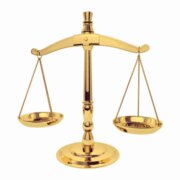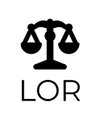Best Guardianship Lawyers in Dublin
Share your needs with us, get contacted by law firms.
Free. Takes 2 min.
List of the best lawyers in Dublin, Ireland
About Guardianship Law in Dublin, Ireland
Guardianship in Dublin, Ireland, refers to the legal arrangement where an individual (the guardian) is appointed to take care of the personal and/or property interests of another person (the ward), usually a minor or a person with disabilities. Guardianship decisions are governed by the Guardianship of Infants Act 1964, and more recently the Assisted Decision-Making (Capacity) Act 2015. The primary consideration in guardianship cases is the welfare and best interests of the ward.
Why You May Need a Lawyer
There are several situations where you may need legal assistance concerning guardianship in Dublin, including:
- Appointing a guardian for your children in your will.
- Seeking guardianship of a child after the death or incapacity of the biological parents.
- Disputes between parents over guardianship or access to a child.
- Seeking guardianship for an incapacitated adult who cannot manage their own affairs.
- Dealing with complex inheritance or property issues related to guardianship.
Local Laws Overview
Key aspects of local laws relevant to guardianship in Dublin, Ireland include:
- The Guardianship of Infants Act 1964: This act primarily deals with the guardianship, custody, and upbringing of minors. It emphasizes the welfare of the child as the paramount consideration.
- The Assisted Decision-Making (Capacity) Act 2015: This act allows for supported decision-making for adults who may lack the capacity to make decisions independently. It includes provisions for appointing decision-making representatives.
- Family Law Act 1995 and 1996: These laws include provisions related to family law matters, including guardianship and access to children.
Frequently Asked Questions
What is guardianship?
Guardianship is a legal relationship where a person is appointed to make decisions and care for another person who is unable to do so themselves, commonly a minor or someone with incapacities.
How do I become a guardian?
You can be appointed as a guardian through a court order, usually following an application and consideration of what is in the best interests of the ward.
Can more than one person be a guardian?
Yes, it is possible for more than one person to be appointed as co-guardians for the same ward.
What are the responsibilities of a guardian?
A guardian's responsibilities include making decisions about the personal, financial, and medical affairs of the ward, always prioritizing their best interests.
Can a guardian be removed?
Yes, a guardian can be removed by the court if it is in the ward’s best interests. This typically happens if the guardian is found to be neglecting their duties or acting improperly.
Do grandparents have automatic rights to guardianship?
No, grandparents do not have automatic rights to guardianship. They need to apply to the court to be appointed as guardians.
What happens to guardianship if a parent dies?
If one parent dies, the surviving parent usually retains guardianship. If both parents die, the court will appoint a guardian based on what is in the best interest of the child.
What is temporary guardianship?
Temporary guardianship is a short-term arrangement, often sought in cases where parents will be temporarily unable to care for their child due to travel, illness, or other reasons.
Is legal aid available for guardianship cases?
Yes, legal aid may be available for certain guardianship cases, depending on your financial situation. It is advisable to check with the Legal Aid Board for eligibility criteria.
How long does the guardianship process take?
The length of the guardianship process can vary, but typically it involves filing an application, providing evidence, and attending court hearings. It can take several months from start to finish.
Additional Resources
For further assistance and resources related to guardianship, consider contacting the following:
- The Courts Service of Ireland
- Legal Aid Board
- Citizens Information Board
- Children's Rights Alliance
- Family Resource Centres
Next Steps
If you need legal assistance for guardianship matters, consider the following steps:
- Consult a Solicitor: Seek legal advice from a solicitor specializing in family law and guardianship. They can provide guidance tailored to your specific situation.
- Gather Documentation: Collect any relevant documents, such as birth certificates, medical records, and any existing legal documents related to the ward.
- File an Application: If you need to become a guardian, your solicitor can assist you in filing the necessary applications with the court.
- Attend Court Hearings: Be prepared to attend any court hearings and provide any necessary evidence to support your application.
Lawzana helps you find the best lawyers and law firms in Dublin through a curated and pre-screened list of qualified legal professionals. Our platform offers rankings and detailed profiles of attorneys and law firms, allowing you to compare based on practice areas, including Guardianship, experience, and client feedback.
Each profile includes a description of the firm's areas of practice, client reviews, team members and partners, year of establishment, spoken languages, office locations, contact information, social media presence, and any published articles or resources. Most firms on our platform speak English and are experienced in both local and international legal matters.
Get a quote from top-rated law firms in Dublin, Ireland — quickly, securely, and without unnecessary hassle.
Disclaimer:
The information provided on this page is for general informational purposes only and does not constitute legal advice. While we strive to ensure the accuracy and relevance of the content, legal information may change over time, and interpretations of the law can vary. You should always consult with a qualified legal professional for advice specific to your situation.
We disclaim all liability for actions taken or not taken based on the content of this page. If you believe any information is incorrect or outdated, please contact us, and we will review and update it where appropriate.















